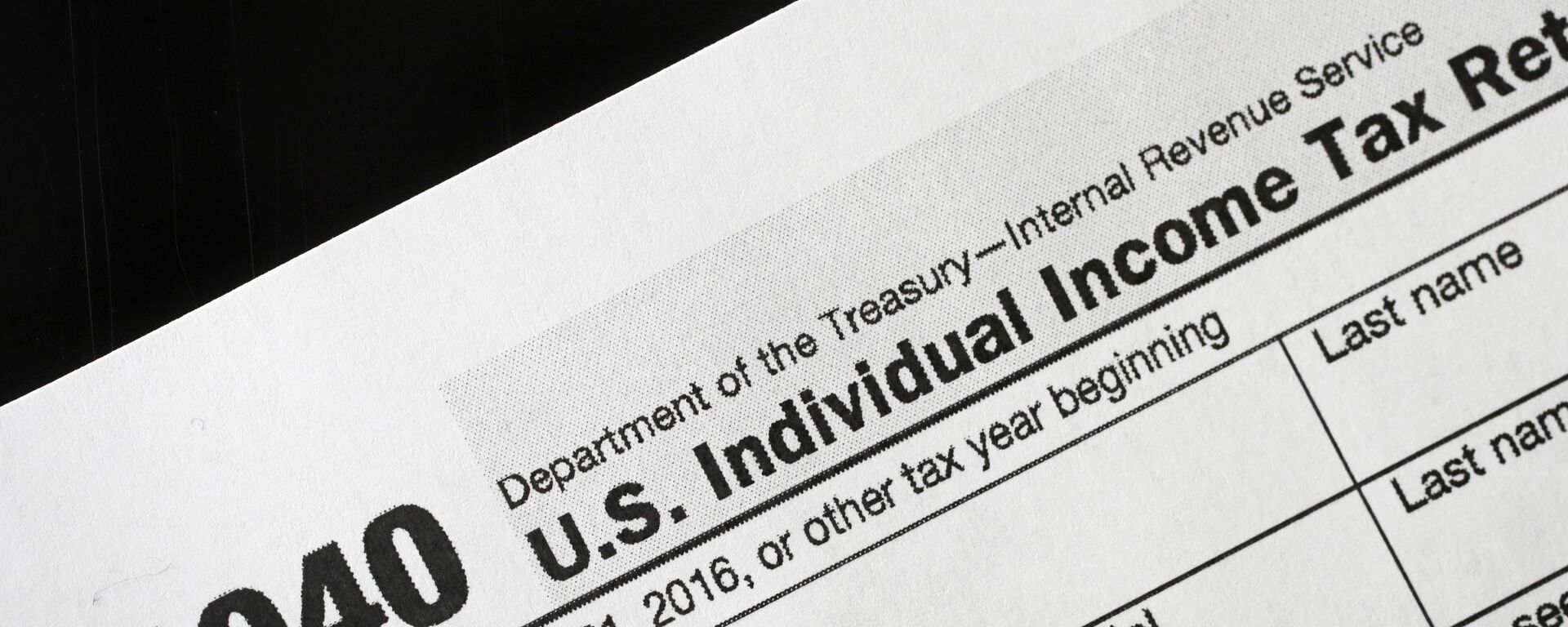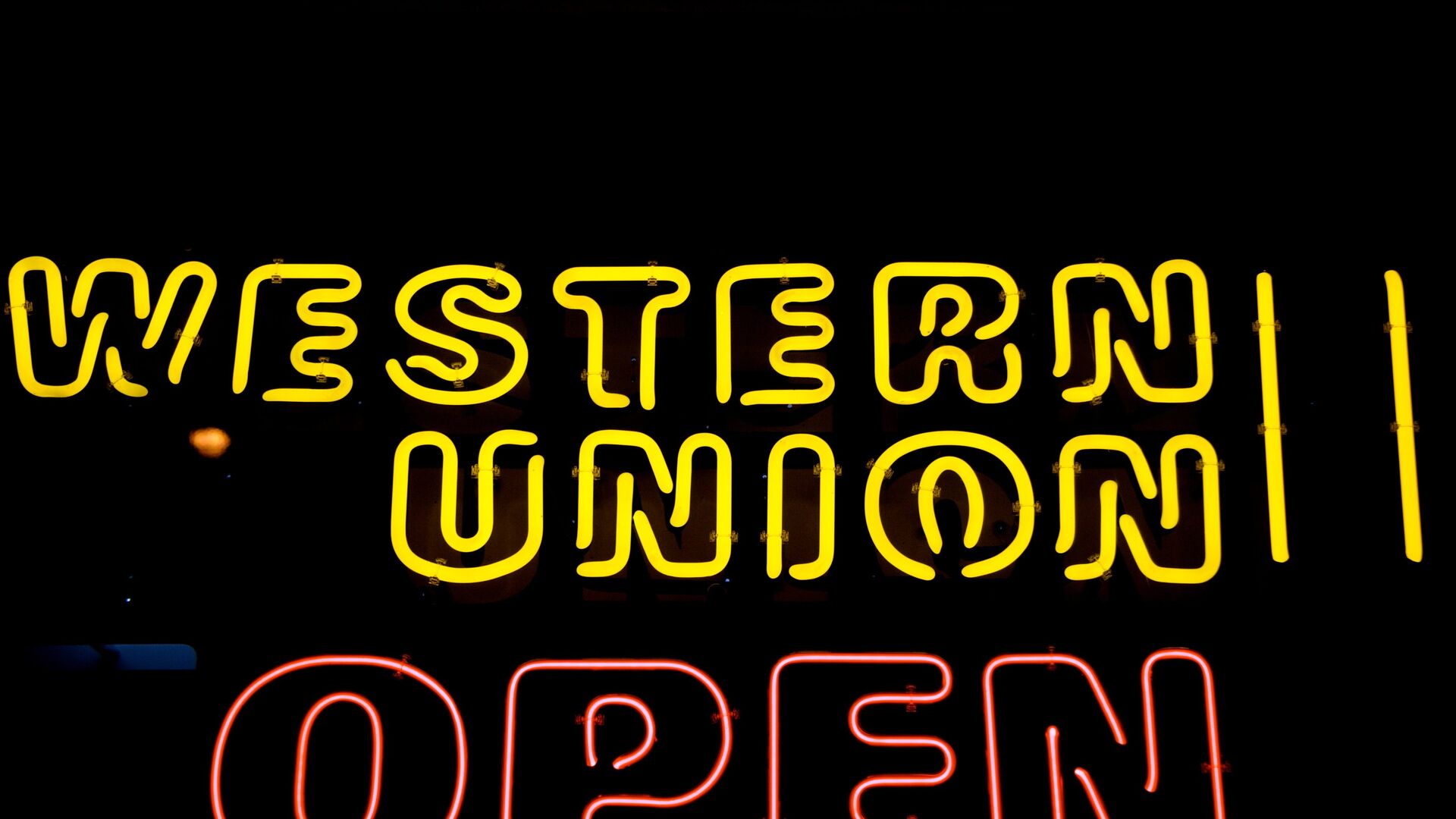https://sputnikglobe.com/20230118/little-known-database-gives-us-law-enforcement-access-to-millions-of-money-transfer-records-1106474288.html
Little-Known Database Gives US Law Enforcement Access to Millions of Money Transfer Records
Little-Known Database Gives US Law Enforcement Access to Millions of Money Transfer Records
Sputnik International
According to the Federal Deposit Insurance Corporation (FDIC), roughly 7% of Americans used money transfer services like Western Union in 2021.
2023-01-18T23:04+0000
2023-01-18T23:04+0000
2023-01-18T22:58+0000
americas
western union
money transfer
government surveillance
https://cdn1.img.sputnikglobe.com/img/103670/06/1036700618_0:0:3889:2188_1920x0_80_0_0_38213fceb84c4485fa42382f3306d19f.jpg
A non-profit organization set up by the Arizona Attorney General is offering a database of more than 150 million money transfers by Americans to virtually any law enforcement officer who requests access.The Transaction Record Analysis Center (TRAC) was set up by Arizona’s Attorney General in 2014. According to internal documents viewed by the Wall Street Journal and an investigation by Sen. Ron Wyden (D-OR), it provides access to not only federal agencies like the FBI, Drug Enforcement Agency and US Immigration and Customs Enforcement, but also virtually any other law enforcement officer, all the way down to small-town police departments.More than 150 million transfers from Western Union, MoneyGram, Euronet, Viamericas, and other money transfer services are stored in the database. They include the full names of the sender and recipient and how much money was sent.The organization was set up after a settlement between Western Union and the state of Arizona to resolve an investigation into whether the company was facilitating money laundering. That $94 million settlement was used by Arizona to set up TRAC, which has since exhausted those funds. According to TRAC director Rich Lebel, the database is now maintained using federal funds.Most of the records involve transactions from the United States going to more than 20 countries, including Caribbean and Latin American countries, Canada, France, Spain, Ukraine, and China. But some transactions are entirely domestic, with cross-state transactions sent to border towns also being scooped up and stored in the TRAC database.Courts have consistently ruled that communications between two US citizens require more judicial oversight than communications involving a foreign participant, though it is unclear if that would also apply to financial transactions.Services like Western Union are used to send money between two parties, either because one or both of the participants are unbanked, or because using a bank is inconvenient, like when the sender and receiver’s banks are on different networks. Money transfer services are also commonly used by immigrants to send money back to their home countries, a practice typically called remittance payments.According to the FDIC, 4.5% of households (approximately 5.9 million) in the US are unbanked, meaning no one in the household has access to a checking or savings account.Lebel says the TRAC database filters out transactions under $500, avoiding most remittance payments.Unlike banks, companies like Western Union are not regulated by the federal government, with that being handled on the state level. Banks must monitor transactions for suspicious activities, report any transaction over $10,000, and follow know-your-customer regulations. On the flip side, law enforcement agencies are required by law to obtain a warrant or subpoena to request bank records and banks are required to notify customers when their records are being handed over to law enforcement.Lebel says that lack of oversight makes the bulk collection critical, and that TRAC is a law enforcement tool that has led to hundreds of leads and busts of drug cartels, money launderers, and other criminals.Since the organization’s founding, TRAC has continued to add to its database. According to documents obtained by the American Civil Liberties Union and viewed by the Wall Street Journal, the Homeland Security Investigation used custom summons, a type of subpoena, to obtain more than 6 million transactions from Western Union and Maxitransfers since 2019. Those transactions were eventually stored in the TRAC database.In 2006, years before TRAC existed, the Arizona Attorney General sent a subpoena to Western Union, requesting records for all of its transfers from Arizona to the Mexican state of Sonora. Western Union fought the subpoena, causing an appeals court to rule that the broad subpoena did not stand up to Arizona law.Shortly after that ruling, the state of Arizona started the aforementioned investigation into Western Union, resulting in the $94 million settlement and eventually, TRAC’s creation. Despite the court ruling, Arizona has continued to send bulk subpoena requests to money transfer companies. Outside of Western Union’s 2006 challenge, no company has fought the subpoenas in court.
https://sputnikglobe.com/20220902/irs-exposes-sensitive-information-about-120000-us-taxpayers-before-fixing-error---reports-1100324766.html
americas
Sputnik International
feedback@sputniknews.com
+74956456601
MIA „Rosiya Segodnya“
2023
News
en_EN
Sputnik International
feedback@sputniknews.com
+74956456601
MIA „Rosiya Segodnya“
Sputnik International
feedback@sputniknews.com
+74956456601
MIA „Rosiya Segodnya“
western union, money transfers, government surveillance, trac, transaction record analysis center
western union, money transfers, government surveillance, trac, transaction record analysis center
Little-Known Database Gives US Law Enforcement Access to Millions of Money Transfer Records
According to the Federal Deposit Insurance Corporation (FDIC), roughly 7% of Americans used money transfer services like Western Union in 2021.
A non-profit organization set up by the Arizona Attorney General is offering a database of more than 150 million money transfers by Americans to virtually any law enforcement officer who requests access.
The Transaction Record Analysis Center (TRAC) was set up by Arizona’s Attorney General in 2014. According to internal documents viewed by the Wall Street Journal and an investigation by Sen. Ron Wyden (D-OR), it provides access to not only federal agencies like the FBI, Drug Enforcement Agency and US Immigration and Customs Enforcement, but also virtually any other law enforcement officer, all the way down to small-town police departments.
More than 150 million transfers from Western Union, MoneyGram, Euronet, Viamericas, and other money transfer services are stored in the database. They include the full names of the sender and recipient and how much money was sent.
The organization was set up after a settlement between Western Union and the state of Arizona to resolve an investigation into whether the company was facilitating money laundering. That $94 million settlement was used by Arizona to set up TRAC, which has since exhausted those funds. According to TRAC director Rich Lebel, the database is now maintained using federal funds.
Most of the records involve transactions from the United States going to more than 20 countries, including Caribbean and Latin American countries, Canada, France, Spain, Ukraine, and China. But some transactions are entirely domestic, with cross-state transactions sent to border towns also being scooped up and stored in the TRAC database.
Courts have consistently ruled that communications between two US citizens require more judicial oversight than communications involving a foreign participant, though it is unclear if that would also apply to financial transactions.
Services like Western Union are used to send money between two parties, either because one or both of the participants are unbanked, or because using a bank is inconvenient, like when the sender and receiver’s banks are on different networks. Money transfer services are also commonly used by immigrants to send money back to their home countries, a practice typically called remittance payments.
According to the FDIC, 4.5% of households (approximately 5.9 million) in the US are unbanked, meaning no one in the household has access to a checking or savings account.

2 September 2022, 20:32 GMT
Lebel says the TRAC database filters out transactions under $500, avoiding most remittance payments.
Unlike banks, companies like Western Union are not regulated by the federal government, with that being handled on the state level. Banks must monitor transactions for suspicious activities, report any transaction over $10,000, and follow know-your-customer regulations. On the flip side, law enforcement agencies are required by law to obtain a warrant or subpoena to request bank records and banks are required to notify customers when their records are being handed over to law enforcement.
Lebel says that lack of oversight makes the bulk collection critical, and that TRAC is a law enforcement tool that has led to hundreds of leads and busts of drug cartels, money launderers, and other criminals.
Wyden counters, saying it allows the government to “serve itself an all-you-can-eat buffet of Americans’ personal financial data while bypassing the normal protections for Americans’ privacy.” The system also allows law enforcement to filter transactions by a variety of criteria, including “Middle Eastern/Arabic Names.”
Since the organization’s founding, TRAC has continued to add to its database. According to documents obtained by the American Civil Liberties Union and viewed by the Wall Street Journal, the Homeland Security Investigation used custom summons, a type of subpoena, to obtain more than 6 million transactions from Western Union and Maxitransfers since 2019. Those transactions were eventually stored in the TRAC database.
In 2006, years before TRAC existed, the Arizona Attorney General sent a subpoena to Western Union, requesting records for all of its transfers from Arizona to the Mexican state of Sonora. Western Union fought the subpoena, causing an appeals court to rule that the broad subpoena did not stand up to Arizona law.
Shortly after that ruling, the state of Arizona started the aforementioned investigation into Western Union, resulting in the $94 million settlement and eventually, TRAC’s creation. Despite the court ruling, Arizona has continued to send bulk subpoena requests to money transfer companies. Outside of Western Union’s 2006 challenge, no company has fought the subpoenas in court.





